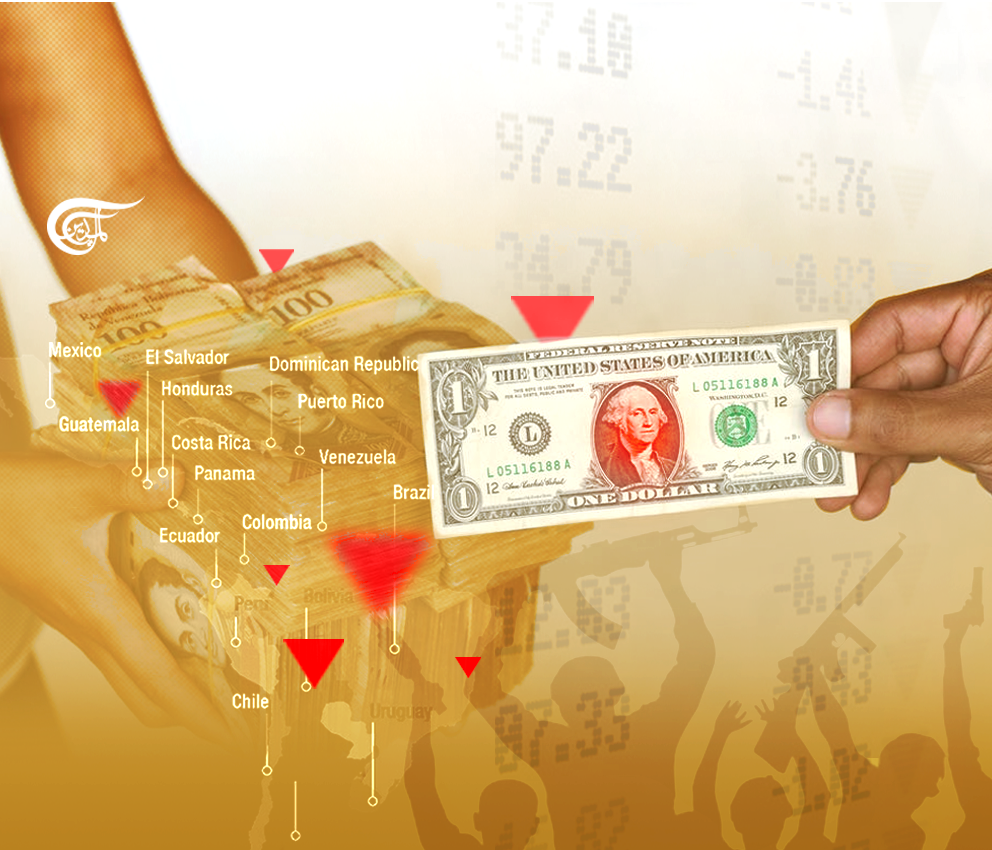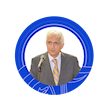The Crossroads of Democracy in Latin America and The Caribbean (LAC)
The world financial power has deployed its economic, political, and media resources to prevent attempts to return democratizing governments in Latin America.
The effects of the pandemic are overwhelming societies in Latin America and the Caribbean, although the states of the region are suffering from a severe double blow. The first is the popular outbreaks requiring economic demands, in health, education, fair treatment, and greater participation in decisions that affect them, while the second is the challenges of the pandemic. The latter places them before the dilemma between scientifically correct health decisions and the basic needs and economic growth, and tax collection in order to face the greater expenditure on both health and social benefits, with the aim of reducing the impact of the crisis on family income.
Social protests represent years of generations that the State not only abandoned, but also violated their most basic rights. Lack of opportunities, chronic poverty, the unequal distribution of wealth, weak or no protection for the most vulnerable populations, seizing native properties, justice discrimination between rich and poor classes are among many other causes of popular discontent. Consequently, they have systematically generated demands for a better state, yet have been violently repressed in order to protect the interests of the local ruling economic classes and the owners of financial capital scattered throughout the world.
The region was plunged into a state of Inequality and low growth according to a recent UNDP report, historically being an area with the highest rates of inequality in the world. For example, the richest quintile of the population represents 56% of the National Income; a gap that has increased with the COVID-19 pandemic, when 22 million people fell below the poverty threshold, returning to 2008 levels. Persistent violence in the region refers both to inequality and instability growth since protests are manifested before the concentration of wealth and power that distorted public policies, perpetuated patterns of inequality and obstructed productivity, increasing citizen outrage and leading to a vicious economic and social cycle.
Surely, our readers from nations in Asia, Africa, and the Middle East will not be surprised by the panorama that Latin America exhibits in the face of the social, political, and economic imbalances as they similarly suffer from. However, there are characteristics that make Latin American and Caribbean countries especially worthy of analysis, unlike, for example, the so-called “Arab Spring”, in which case the Zionist colonial power used its “subordinate US government” to push reactionary governments, in order to hold power, as in Egypt, or to trigger dissidence as in Sudan, or cause states destabilization like in Syria and Libya.
Meanwhile, in LAC the most recent emblematic cases of Colombia (1991), Ecuador (1998 and 2008) have been characterized by constituent processes where representatives of the citizens have drafted new political constitutions declaring those countries as Social States of Rights, protectors, and guarantors of the rights of their citizens in their wide diversity.
This year it was Chile's Turn, which, after a social outbreak in October 2019, the Congress unanimously agreed to a Constituent Convention that in a popular vote on mid-May elected 155 representatives of the citizens, 17 of which belonged to indigenous peoples, and took gender parity into consideration, thus becoming an example of worldwide. The convention began its meetings on July 4 to write the New Constitution.
Unfortunately, in the case of Ecuador, former President, Lenin Moreno, obstructed the democratizing process initiated by his predecessor Rafael Correa and, in the case of Colombia, its current President, Iván Duque, whose government's accused of several cases of corruption, has not respected aspects of the peace accords signed with the FARC-EP (former guerrilla groups) and has violently repressed the social uprising with repeated human rights violations, as has also occurred in Chile since October 2019.
The world financial power has deployed its economic, political, and media resources to prevent the return of democratizing governments in Latin America, such as the cases of Lula Da Silva in Brazil, Rafael Correa in Ecuador, Evo Morales in Bolivia (who finally was embodied in Luis Arce). It also tried to prevent the victory finally achieved by Pedro Castillo in Peru, and it is fiercely attacking the left-wing movements and parties in Chile in an attempt to prevent them from ruling again after the elections next November.
Violence that stifles the longings of the peoples has in common in LAC, the use of weapons, repression techniques, and the support of Israeli military advisers, as it was during the dictatorships of the 70s and 80s, with “Israel” being nowadays one of the main suppliers of weapons and security technology, backed by its enormous financial capacity and its political lobby to buy wills, and open a deadly market.
Citizens in LAC distrust their State and their institutions permeated by implacable economic neoliberalism; a state that lacks responsibility, and unable to prevent multinational and large local consortiums from predating its natural resources and negatively affecting communities, especially its indigenous ones. They pollute the air and take over the water, emitting extremely high levels of toxic substances, particularly in the so-called “sacrifice zones” in Chile where chronic diseases have been dragging on for years among the population.
With the constituent process underway, Chile will have a historical opportunity to set an example of an expression of the popular will. Let us hope that, along the way, the politicians captured by “the facto powers” won't subdue it, so that the country becomes a reference to the rest of the oppressed peoples that are able to raise the hope, that can trace a path and equitable life, and achieve prosperous societies, sustainable and respectful of our planet.

 Mikhael Marzuqa
Mikhael Marzuqa
 6 Min Read
6 Min Read











